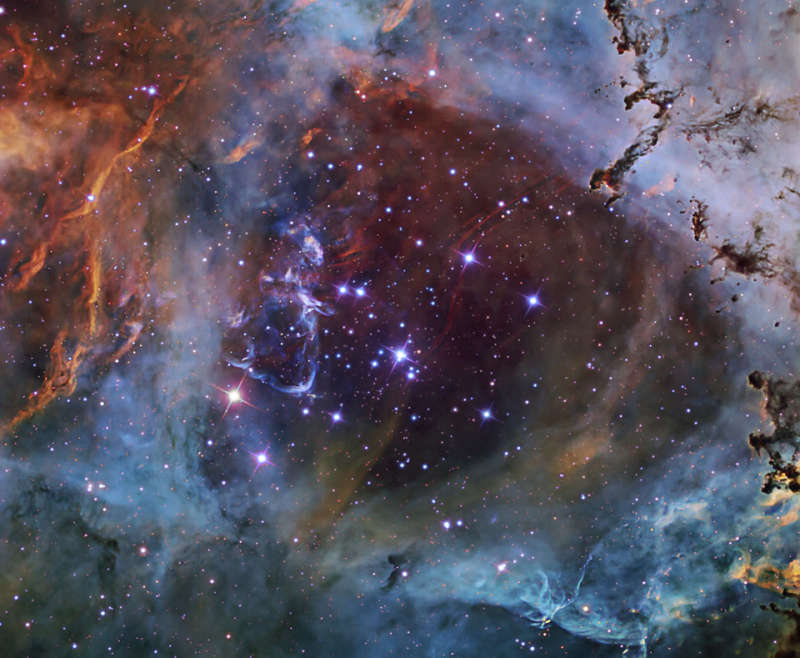Credit & Copyright: Don Goldman
Explanation:
In the heart of the
Rosette Nebula lies a bright
open cluster
of stars that lights up the nebula.
The stars of NGC 2244 formed from the surrounding gas only a few million years ago.
The above image
taken in January using multiple exposures and very specific colors of
Sulfur (shaded red),
Hydrogen (green), and
Oxygen (blue),
captures the central region in tremendous detail.
A hot wind of particles streams away from the cluster stars
and contributes to an already complex menagerie of gas and
dust filaments while slowly evacuating the cluster center.
The Rosette Nebula's
center measures about 50 light-years across, lies about 4,500 light-years away,
and is visible with binoculars towards the constellation of
the Unicorn
(Monoceros).
Follow APOD on:
Facebook,
Google Plus,
or
Twitter
1999 2000 2001 2002 2003 2004 2005 2006 2007 2008 2009 2010 2011 2012 2013 2014 2015 2016 2017 2018 2019 2020 2021 2022 2023 2024 2025 2026 |
Yanvar' Fevral' Mart Aprel' Mai Iyun' Iyul' Avgust Sentyabr' Oktyabr' Noyabr' Dekabr' |
NASA Web Site Statements, Warnings, and Disclaimers
NASA Official: Jay Norris. Specific rights apply.
A service of: LHEA at NASA / GSFC
& Michigan Tech. U.
|
Publikacii s klyuchevymi slovami:
Rosette Nebula - open cluster - Tumannost' Rozetka - Rasseyannoe skoplenie - zvezdnyi veter
Publikacii so slovami: Rosette Nebula - open cluster - Tumannost' Rozetka - Rasseyannoe skoplenie - zvezdnyi veter | |
Sm. takzhe:
Vse publikacii na tu zhe temu >> | |
